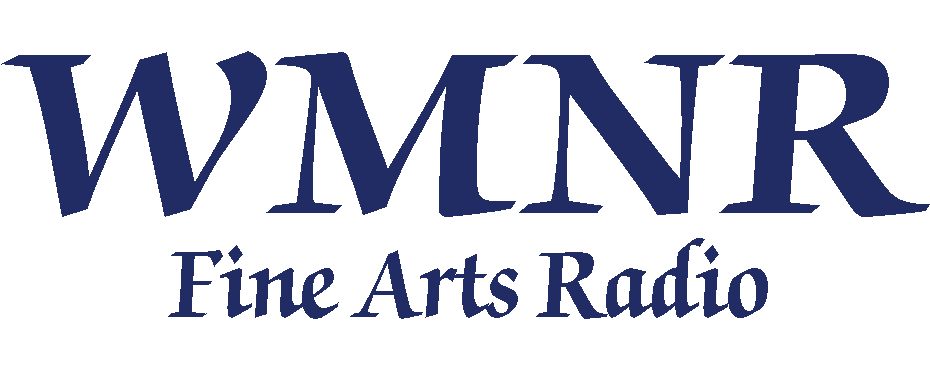Listeners share their stories of discovering
WMNR
Broadcaster Gary Fountain and phone volunteer Liz Steffen of Old Saybrook share a moment during our January 2020 fundraising week.
“I grew up in New York City and the station I heard even before I was born was WQXR, the radio station of The New York Times. It was classical music. My mother listened to it all the time and as I grew up so did I. When I moved to Connecticut, I was still able to get it on the AM side of the dial. George Edwards got me up for school and then work for ages. Symphony Hall in the evenings, The New York Philharmonic on Sunday afternoons, Boston Symphony or Pops on Saturday nights, and the irrepressible Duncan Pirnie and his terrible puns in the afternoon. During the season, it carried the Metropolitan Opera. I was heartbroken when the station was sold and went off the air. One day I was flipping stations on my stereo, searching for classical music and I discovered WMNR. It was a life-saver. The FM dial did not change once I found the station. These days with the isolation resulting from COVID, the music is a tranquilizer, better than Valium. When I first heard the station needed telephone volunteers during the fund drives I immediately called in. I’ve never regretted the decision. I’ve made friends with some of the hosts and cannot wait until we volunteers are again able to be at the station. Keep up the great work.”
---Old Saybrook, CT
“I remember how I discovered WMNR because it was barely 5 years ago. In December 2015, I moved to Fairfield center from Norwalk, where I had a rooftop antenna for VHF, UHF, and FM. Which I still miss, but live in a condominium now where rooftop antennas are not permitted. So for FM I resorted to a dipole and was exploring with the FM tuner in the lower frequency range like high 80s and low 90s which is where interesting stations tend to be; like public radio, universities, the classical and jazz. So, I found WMNR first at 91.5 which was received OK, then learned about 105.3 based in Southport which was better, and became the frequency preset in my tuner.”
---Fairfield, CT
“Way back in the 1990s I would listen to WNCN. When I got bored with what they had on I explored the FM dial and found WMNR. I liked it! One Saturday afternoon when I had my aunt and father-in-law over for early dinner, I found Raymond Zahn’s show on WMNR. Did it bring back memories for them! The next Saturday, Garrett Stack was on, and once again, a big hit! Well, for many decades now, Garrett’s show has always been my Saturday afternoon staple, even as it evolved from Echoes of the Past to American Jukebox™. Even now with all the interference on the dial, I listen online to Garrett! Thanks for the memories, WMNR.”
---Huntington, NY
“7:30 PM in the suburbs of Paris during WWII. Four consecutive beats like in Beethoven's symphony. We children were told to be absolutely quiet while Daddy had his ear glued to the radio, listening to the BBC broadcast from London. It was forbidden to listen to foreign broadcasts, so the volume had to be kept very low for fear the neighbors might hear and denounce us to the authorities. The programs always ended with a series of what I thought then were a series of "stupid, boring sentences." It was only as an adult that I understood that these phrases were coded messages for the underground resistance.
My beloved WMNR! My husband had passed away in 1982. To fill the terrible void, I started volunteering at the Stratford, CT Senior Center, teaching French. I had complained that I couldn't hear any classical music on the radio except for one station from New York. (I believe that it was WQXR, if my memory serves me right), whereas in France you could tune to many different channels and hear it. This is when one of my ‘students’ told me about WMNR. That station replaced the pillow talk. Now, it is my alarm clock and my lullaby.”
-— Milford, CT

